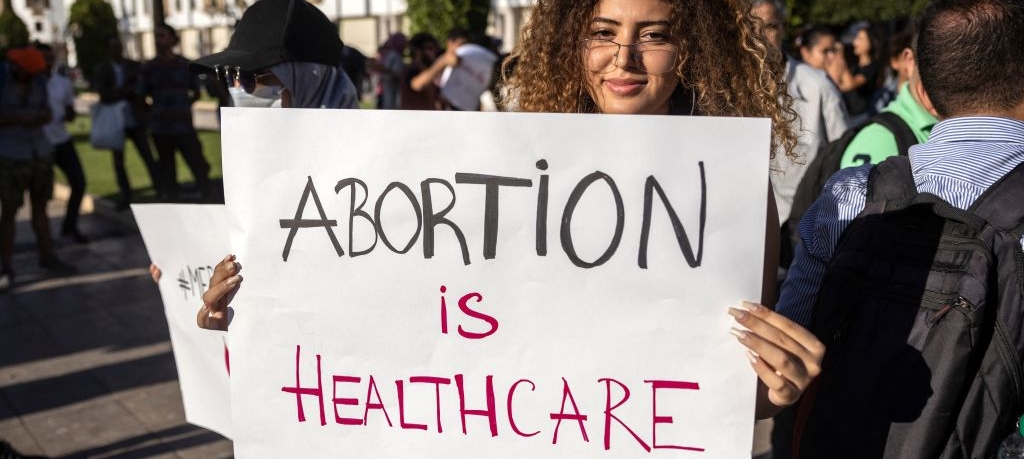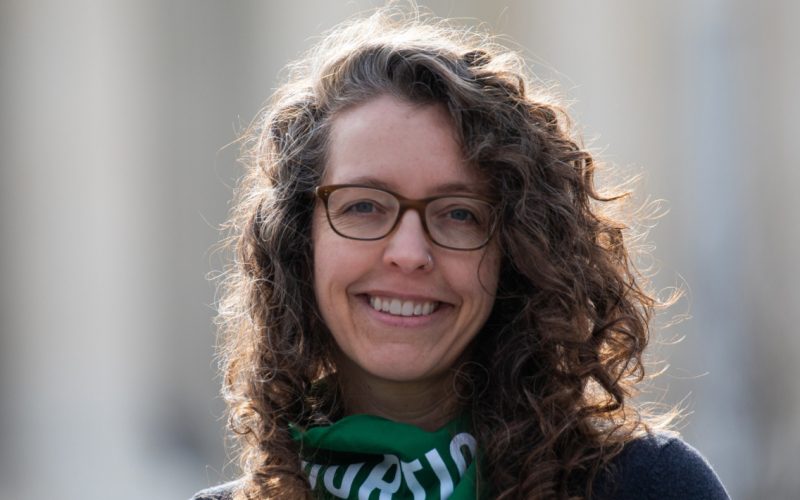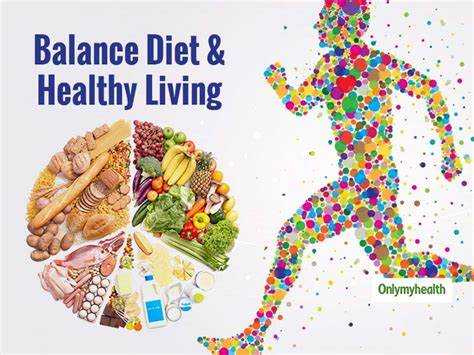Introduction
Abortion rights in the United States have been a contentious issue for decades, with both sides of the debate holding strong and divergent views. In recent years, the issue has come to the forefront once again, with the Supreme Court poised to overturn Roe v. Wade, the landmark 1973 decision that legalized abortion nationwide.
To shed light on this complex and controversial topic, we spoke with Tarah Demant, the Director of Public Affairs for Catholics for Choice. Catholics for Choice is a national organization that advocates for abortion rights and reproductive justice for all people.
The Legal Landscape of Abortion in the U.S.
Demant began by providing an overview of the legal landscape of abortion in the United States. “Abortion is legal in all 50 states,” she said. “However, access to abortion varies widely depending on the state you live in.”
In recent years, states have enacted a number of restrictions on abortion, including mandatory waiting periods, parental consent laws, and bans on abortion after a certain point in a pregnancy. “These restrictions are designed to make it more difficult for people to access abortion care,” said Demant. “They are particularly harmful to people who are already facing barriers to healthcare, such as people of color, LGBTQ+ people, and people with low incomes.”
The Role of the Supreme Court
The Supreme Court has played a pivotal role in shaping abortion rights in the United States. In 1973, the Court ruled in Roe v. Wade that the Constitution protects a woman’s right to choose whether or not to have an abortion. This ruling has been upheld by the Court in subsequent decisions, most notably in Planned Parenthood v. Casey in 1992.
However, the current Supreme Court is considered to be more conservative than previous Courts. This has raised concerns that the Court could overturn Roe v. Wade or weaken it to the point that it is no longer meaningful.
“If Roe v. Wade is overturned, it would have a devastating impact on abortion access in the United States,” said Demant. “It would allow states to ban abortion outright, and would likely lead to a patchwork of laws across the country, with some states having very restrictive abortion laws and other states having more permissive laws.”

The Impact of Abortion Restrictions
Demant emphasized the negative impact that abortion restrictions have on women’s lives. “Abortion restrictions do not prevent people from having abortions,” she said. “They simply make it more difficult and more dangerous for people to access the care they need.”
Women who are unable to access safe and legal abortion care may resort to unsafe abortion methods, which can have serious health consequences, including death. Additionally, abortion restrictions can have a significant impact on women’s economic and educational opportunities.
“When people are denied access to abortion, they are more likely to experience poverty, homelessness, and other negative outcomes,” said Demant. “Abortion restrictions are a form of discrimination that disproportionately harms women of color, LGBTQ+ people, and people with low incomes.”
The Importance of Abortion Rights
Demant stressed the importance of abortion rights for all people. “Abortion is a fundamental healthcare service that should be available to all people who need it,” she said. “It is a matter of reproductive justice and bodily autonomy.”
Abortion rights are essential for women’s health, well-being, and equality. They allow women to control their own bodies and make decisions about their own futures.
“Abortion is a complex and personal decision that should be made by the person who is pregnant, in consultation with their healthcare provider,” said Demant. “Politicians should not be making these decisions for them.”
The Role of Public Education and Advocacy
Demant believes that public education and advocacy are essential to protecting abortion rights. “It is important for people to understand the facts about abortion and the impact that abortion restrictions have on women’s lives,” she said.
Catholics for Choice and other organizations are working to educate the public about abortion rights and to advocate for policies that protect access to abortion care.
“We need to make sure that people know that abortion is a safe and legal medical procedure,” said Demant. “We also need to make sure that people know that abortion restrictions do not prevent people from having abortions, they simply make it more difficult and more dangerous.”
Conclusion
The future of abortion rights in the United States is uncertain. However, Tarah Demant and others are committed to fighting for the right of all people to make decisions about their own bodies and their own futures.
“Abortion rights are essential for women’s health, well-being, and equality,” said Demant. “We will not stop fighting until abortion is safe, legal, and accessible for all.”










